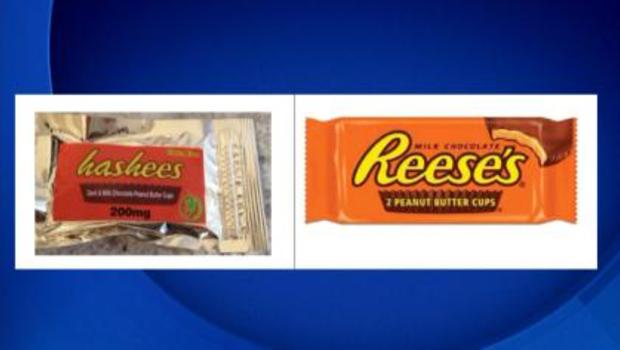When thousands of police veterans agree it’s time to end the War on Drugs and legalize marijuana, you know it’s time. Our interview with Law Enforcement Against Prohibition (LEAP) staff Neill Franklin (Exec. Dir.) and Diane Goldstein (Sec.).
About the Author
Michael is a journalist and filmmaker. His award-winning documentary, Sleeping with Siri is playing film festivals across the country. Stusser runs TechTimeout campaigns in high schools across the country, asking teenagers to give up their digital devices (for a little while) in order to find balance, and perhaps even make eye-contact with their parents.You Might also like
-
Girl Scout Munchies
Girl Scouts are getting entrepreneurial in their efforts to sell their delicious cookies near dispensaries. Are they taking advantage of folks with the munchies, or just smart business-girls?
-
HERSHEY SUES EDIBLE MARIJUANA CO. OVER EDIBLES (AND REEFERS PEANUT BUTTER CUPS)
(Washington Post)
The Hershey Co. has filed a trademark suit against an edible marijuana company for selling weed-infused snacks with packaging that mimics some of Hershey’s signature candies.
In the lawsuit, filed last week in U.S. District Court in Denver, Hershey claims that the Colorado-based medical marijuana manufacturer Tincture Belle is selling products that look suspiciously like its Reese’s, Heath, Almond Joy and York Peppermint Pattie brands.
Not only are the products packaged in similar colors as the Hershey originals, the candy-making giant contends, their names are also reminiscent of their analogs: Hashees, Hasheath, Ganja Joy and Dabby Patty.
Hershey says that the packaging is not only a clear trademark violation, but also a safety risk to consumers — especially children — “who may not distinguish between Hershey’s candy products and defendants’ cannabis- and/or tetrahydrocannabinol-based products.”
Although recreational and medicinal marijuana sales are legal in Colorado, the burgeoning edible pot industry has raised some safety concerns.
In April, a Denver teen plunged off a balcony after eating six times the recommended amount of a marijuana brownie. And another man was accused of killing his wife in a hallucinatory episode after eating marijuana candy and rolling a joint, according to CBS News.
New York Times columnist Maureen Dowd’s own encounter with a caramel-chocolate flavored candy bar prompted her to argue in her column for greater regulation of the edibles industry.
It appears that Tincture Belle’s Web site and Facebook page are down. But according to the Associated Press, the products can be found in Colorado’s pot shops and medical marijuana dispensaries.
According to Tincture Belle, their pot products are gluten-free, vegan, sugar-free, GMO-free and peanut-free — although they do come with a hint of imitation.
(Thanks to Abby Philip for original post in Washington Post)
-
ANDERSON COOPER’S “GONE TO POT” IS THE BEST THING WE’VE SEEN IN A LONG TIME
CNN reporter Randi Kaye does the best job showing America what retail weed stores will look like that we’ve seen on Higher Ground. She also gets a hilarious contact high from being “hotboxed”in a Cannabis Tourbus.





